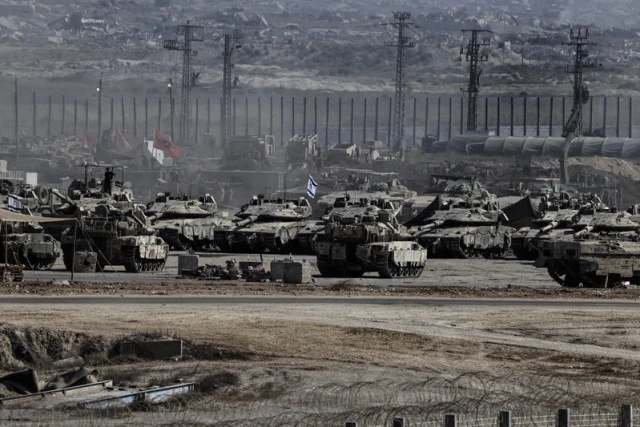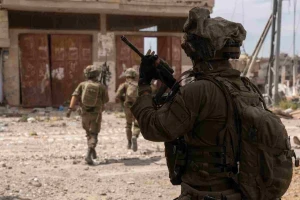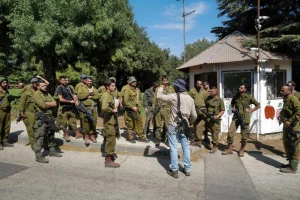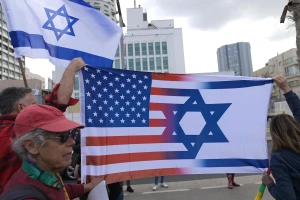Operation Gideon’s Chariots II and the Israeli hostages: Despite IDF reservations, PM Netanyahu pursues a strategy of military pressure on Hamas

At the end of Operation Gideon’s Chariots, the name for Israel's renewed military campaign against Hamas in Gaza, which began this past May, the IDF currently holds operational control of about 75% of the Gaza Strip.
The Israeli Cabinet requested that the Israeli military present a plan for the takeover of the last remaining Hamas stronghold in Gaza City. IDF Chief of Staff Eyal Zamir proposed a solution in which the IDF focuses on maintaining operational control of the area it holds, while further consolidating that hold and cleaning out any remaining Hamas terror infrastructure. At the same time, the IDF would conduct targeted raids and strikes to engage in a war of attrition with Hamas in the remaining areas of Hamas control: Gaza City, parts of Khan Younis, and the central camps where Hamas still maintains a presence.
That plan would have enabled the IDF to scale back reliance on reserve soldiers – who have faced repeated call-ups and deployments for nearly two years – but it was unlikely to have applied sufficient pressure on Hamas to secure its defeat or force it back into another hostage deal.
Prime Minister Benjamin Netanyahu and Defense Minister Israel Katz favored another large-scale operation to defeat Hamas as both a military and government force in the Strip, while possibly achieving another hostage release.
They asked Zamir and the IDF to present a plan for such a scenario. That plan was approved by the Cabinet, with Katz and the IDF chief referring to it as Operation Gideon’s Chariots II.
As part of the plan, the IDF will focus on three main points:
First, it would facilitate the evacuation of almost 1 million Gaza City residents to the southern Gaza Strip, primarily to the al-Mawasi humanitarian zone or other adjacent safe zones.
Second, following a significant evacuation of civilians, the IDF would begin the takeover of Gaza City, focused on areas the security establishment believes to be free of Israeli hostages. The campaign would involve capturing territory and dismantling Hamas infrastructure, likely resulting in widespread demolition of existing structures in the city.
The third focus would be expanding humanitarian infrastructure in the southern Gaza Strip, including greater access to field hospitals set up by the United Arab Emirates and other nations. It could even include the controversial “tent city” envisioned by Defense Minister Katz, which, despite international outrage, would improve the living conditions of tens of thousands of Palestinians currently living in southern Gaza with minimal shelter.
The large-scale ground operation in Gaza City would be conducted methodically and slowly, both to minimize risk to the hostages and to increase pressure on Hamas in the hopes of achieving a hostage deal to return most or all of the remaining hostages.
The belief is that as Hamas realizes it has lost political control over the majority of Gaza’s population, and as it witnesses the destruction of the last major urban area untouched by fighting, Hamas would understand that its time was up and, in an attempt to save their own lives, agree to a hostage deal in exchange for the exile of remaining Hamas operatives.
The fighting in Gaza City is expected to last anywhere from two months to more than six months, depending on how firmly entrenched Hamas is in the city and how actively it engages in armed conflict with IDF troops.
If Hamas persists in fighting after the defeat of Gaza City, the IDF would then turn its focus to the central camps, particularly Nuseirat, Bureij, Deir al-Balah, and Mughazi. The IDF has already begun putting some pressure on Hamas in these areas, and has encouraged Palestinian residents to move southward.
The takeover of the central camps is projected to take about the same time as the conquest of Gaza City, particularly with Zamir wishing to prevent burnout among the reserve soldiers.
Israel’s post-war goal for Gaza is an enclave free of Hamas and other Palestinian militant factions, which for the Israeli government also includes the Palestinian Authority. It prefers establishing a civil authority, locally recruited and managed with input from the United Arab Emirates and Saudi Arabia.
The UAE and the Saudi Kingdom would also be heavily involved in reconstruction efforts and establishing a new educational system, according to the plan.
Israel also favors working with Gulf states and U.S.-backed organizations to scale up humanitarian aid during and after the war, viewing the United Nations and its affiliated NGOs as too compromised because of their problematic relationship with Hamas over the years.
Renewed efforts to achieve a hostage-ceasefire deal have recently begun to take shape, particularly led by Egypt, which does not want Israel to carry out a full takeover of the Gaza Strip, even if Israel agrees to avoid a full-scale occupation.
The recent Egyptian proposal called for the release of 10 living and 18 deceased hostages at the beginning of a 60-day ceasefire. Hamas claimed to have agreed to the deal, but its approval came immediately after Netanyahu declared he would no longer agree to a partial hostage release and would only consider a comprehensive deal returning all remaining hostages – living and deceased – in one release. Hamas is believed to have accepted the proposal only after Netanyahu’s announcement, expecting him to reject it, which would then cause him to face further political fallout at home.
The resumption of large-scale fighting in Gaza City and the central camps constitutes a significant risk to the hostages, as Zamir himself expressed during a visit to the naval base in Haifa on Sunday.
He reportedly said, “There's a deal on the table, it's the improved Witkoff plan. It has to be taken. The IDF brought the conditions for a hostage deal; now it's in Netanyahu's hands. There is a great risk to the lives of the captives in the occupation of Gaza City.”
Despite this statement, the IDF has begun repositioning its forces in Gaza to prepare for the conquest of Gaza City, including launching some airstrikes within Gaza City and its surrounding neighborhoods.
Netanyahu appears to be pursuing two goals simultaneously: the defeat of Hamas as the governing and military force in Gaza and the release of the remaining hostages. He believes the imposition of enough pressure, along with the removal of the civilian population as human shields, could lead Hamas to collapse and accept surrender terms, including the release of the remaining hostages.
The question facing the IDF is how to conduct the operation in a way that pressures Hamas to agree to such terms without overly increasing the risk to the hostages.

J. Micah Hancock is a current Master’s student at the Hebrew University, pursuing a degree in Jewish History. Previously, he studied Biblical studies and journalism in his B.A. in the United States. He joined All Israel News as a reporter in 2022, and currently lives near Jerusalem with his wife and children.
You might also like to read this:











